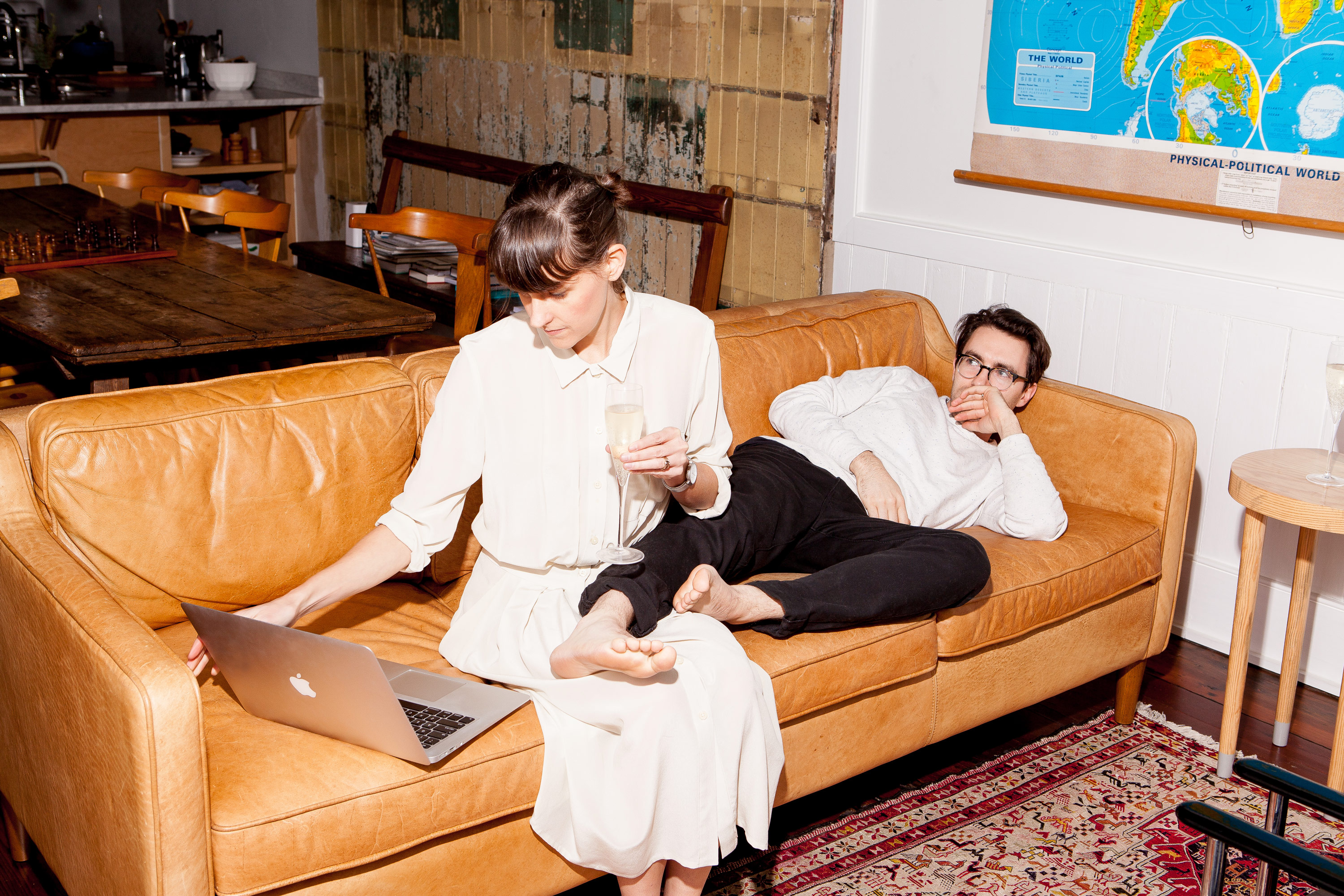
- Interview by Tammi Heneveld March 8, 2016
- Photography by Fuzzco
Helen Rice & Josh Nissenboim
- creative director
- designer
- entrepreneur
Helen Rice and Josh Nissenboim are creative directors and co-founders of the award-winning, South Carolina-based creative agency, Fuzzco. They are known for their playful, refined style, and have worked with clients like MailChimp, Google, Slack, Etsy, and Bonobos, among others. They opened up a second office in Portland, Oregon, in 2015 and recently launched Pretend Store, a digital and brick-and-mortar retail offshoot of their studio.
Tell me about your path to starting Fuzzco together.
Josh: Everything started when Helen and I met in St. Paul, Minnesota, at a small school called Macalester College. I studied math and Helen studied studio art, but we actually met in French class. We became close very quickly and dated throughout college.
When we graduated in 2003, we had to figure out what we were going to do next. I moved to Madison, Wisconsin, and did a lot of different things: recorded an album, worked at a library and a liquor store, then got a job at a software company. Helen joined me in Wisconsin before she and I moved to Charleston together in August 2004.
Helen: Part of my senior show in college was making children’s picture books. Josh helped me with the writing and I did the illustrations, and that was kind of our first project together.
At the time, we couldn’t find any jobs in Charleston that got us excited. I had been doing some design work, and Josh knew how to build websites, so we said, “Hey, let’s try to do this for people we know in town.”
Josh: We came up with the name “Fuzzco” in a few hours, and we took shifts working on my old PC from college because we had very little money to work with. After a while, we began to learn a lot, build relationships, and do good work—we were hooked. We probably charged way too little when we started, (laughing) but we said yes to everything for the sake of learning, working, and growing.
We didn’t know that we wanted to start a creative agency. It began because we needed something to do, and it eventually grew from there.
Were either of you working day jobs at the time?
Josh: Yes, for a few years. I tutored math students in my spare time and did some other weird side jobs until 2007.
Helen: (to Josh) You also had a cab company for a little while.
Josh: Right. That was a disaster, but it seemed good on paper. I also day-traded a little bit. I was just messing around, trying to figure out independent ways of surviving. But a few years later, Fuzzco became a viable business. At some point, we found ourselves with a steady flow of work and started winning awards, which we never expected. Clients began reaching out from everywhere, not just down the street, and we gained more momentum.
Then one day in 2008, a designer—this wonderful guy named Mason—emailed us. The essence of what he said was, “Hey, I want to work with you.” We weren’t hiring, but the way he told us what was going to happen was really charming, and his work was amazing, so we hired him. He’s still a close friend.
Helen: He’s such a weirdo; we just loved him and it felt really natural. When he started, Josh and I were living at our contractor’s house because the renovation on our office/house was several months late. Mason’s very first job was painting the house so we could move in, which took 20 days. (laughing)
Josh: We never thought we’d have a company with employees or anything like that when we first started. But once we got into a rhythm, we realized that it was kind of awesome surrounding ourselves with really talented people. So we got hooked on trying to build a team. Over the years, we’ve had some incredible people join us, and we couldn’t be more proud of our team today.
Helen: Another big part of our story is that we’ve moved around Charleston a lot, and our office has been located in maybe six or seven different buildings. Along the way, we’ve been able to renovate and design a lot of our spaces, which references the holistic way we think about our work. It’s not just design and development: it’s about the whole experience. Being able to extend our brand into a space is a big deal to us. It’s been a lot of fun. And about a year ago, we opened our Portland office.
“I believe that being a couple has given us a competitive advantage: we have accomplished more in less time than some other businesses have because Helen and I are in constant communication.” /Josh
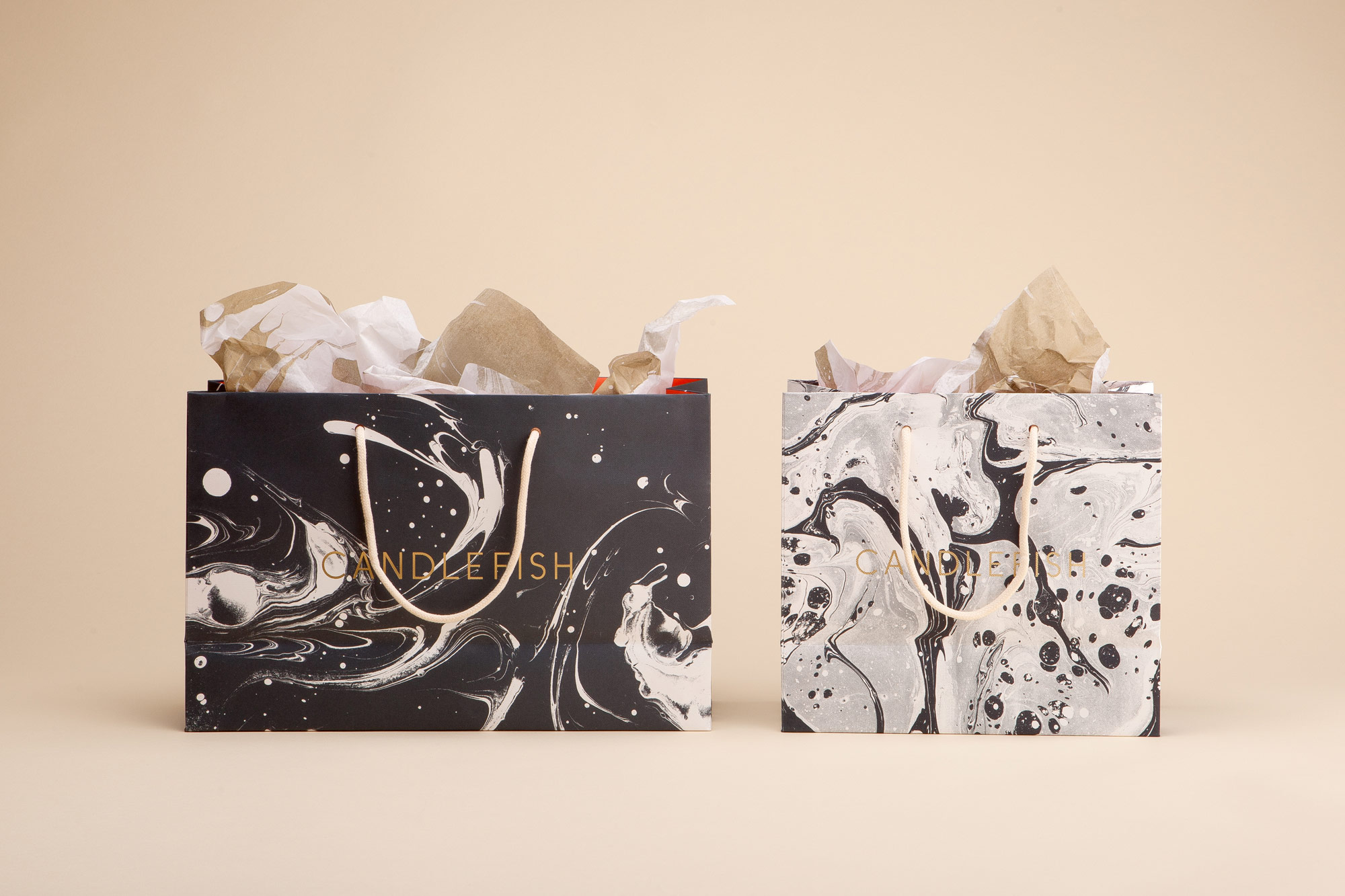
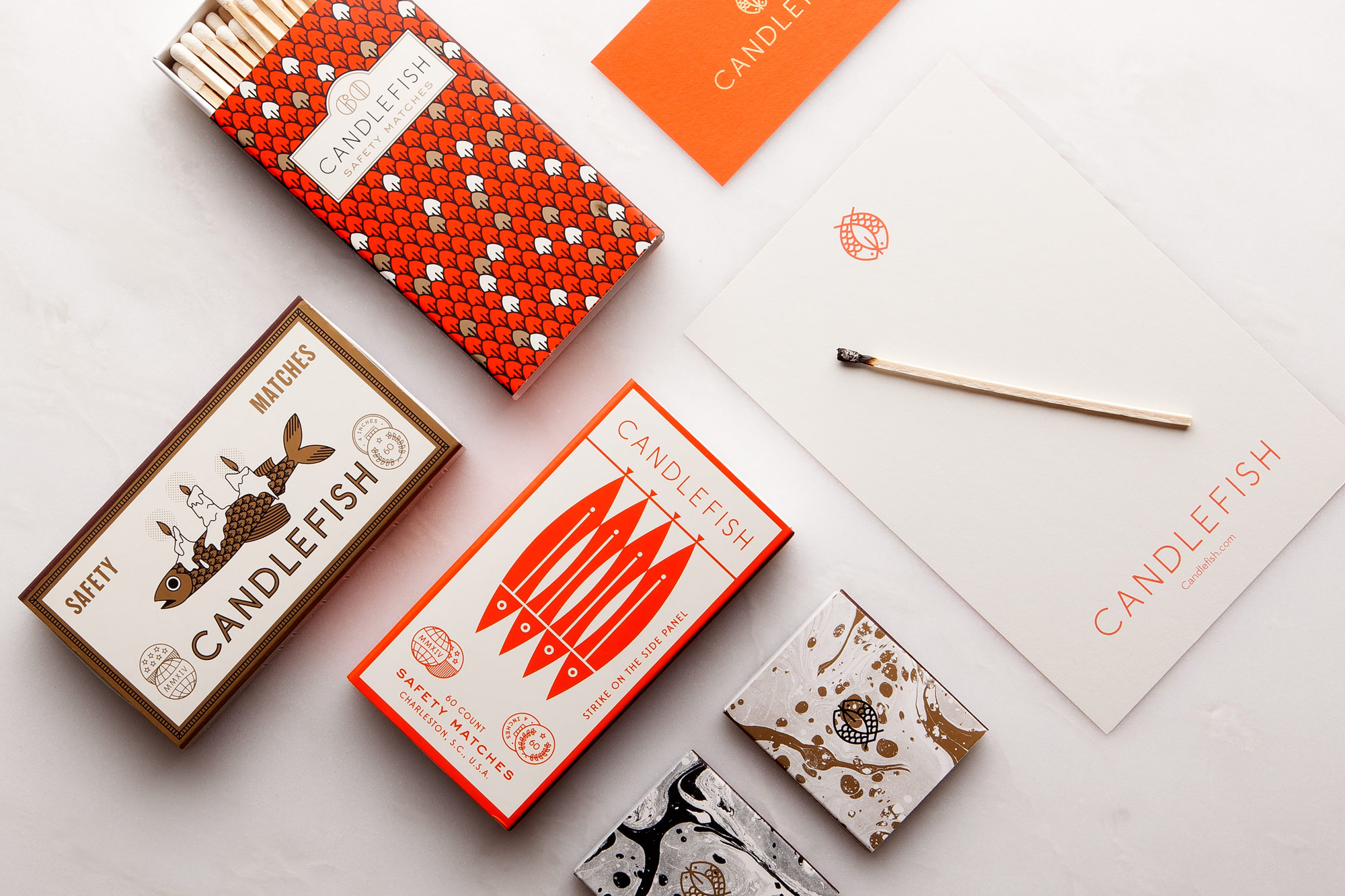
Did either of your parents run their own businesses or influence you to seek out creative work?
Helen: My dad definitely influenced my interest in art. He’s an architect who has always painted and drawn. He encouraged me to be creative, have fun, and draw a lot. My mom was a bookkeeper for a long time, which is very detail-oriented, so she taught me about being thorough.
Neither of my parents worked for themselves while I was growing up, although my mom started working for herself a little bit recently. There wasn’t an impetus for me to go in that direction early on, but Josh is a different story.
Josh: My mom is a social worker: she was the director of an adult day care program for people with dementia. As a kid, I sometimes went with her after school and saw her run her office with a few other staff members. She’d let me make myself a cup of instant coffee with three packs of sugar and a bunch of milk, so I’d get a pretty big sugar and caffeine high and hang out with the old people who went there. The people were happy, and I found that amazing to be around as a kid.
My dad is originally from Israel, and he dropped out of school when he was 12 or 13 years old. His parents ran a small dairy farm in a village called Yokneam in Northern Israel. He played a lot of soccer and was in three wars before moving to the United States in 1979. When he moved to the US, he got a job making minimum wage at a metal recycling plant in South St. Louis.
Then one day, he quit. I remember feeling like we were barely making it as a family, so this was an exciting time. (laughing) He immediately bought a used truck and a used lawn mower and started cutting grass for people. He has a very loud, unruly personality and his English isn’t very good; but he loved joking around with people who didn’t understand what he was saying—in short, he made a strong impression. When I was growing up, I cut grass with him on weekends and during the summer. We did this for years. I saw firsthand what it was like to work hard to make a living and how important it was to be yourself and create strong relationships with your customers.
I still do my dad’s billing for him every month. He rattles off in Hebrew how many times he cut each person’s grass, while I keep a spreadsheet, do a mail merge, and send the bills to a Kinkos down the street from his house.

As business partners, is it important for you to have clearly identified roles separate from one another?
Josh: We struggled with those boundaries for a long time, actually. When it was just the two of us, we found a rhythm. We knew what each of us was best at, but we switched on a project-by-project basis: sometimes I would design when Helen should have been designing, and sometimes Helen would write code when I should have been writing code.
Helen: I built a lot of Flash websites back in the day. (laughing) We constantly had opinions about what the other one was doing and didn’t always agree, which was stressful, but over time we found a much better dynamic.
Josh: As we’ve grown our team, we’ve learned the importance of each owning our own projects and focusing on our strengths.
Helen: Yeah, for the most part we divide and conquer, knowing when to bring the other in for added perspective.
Josh: One of us is the lead and makes the final decisions on each project. Establishing that subtle boundary did a lot.
When you began looking for clients, did you tap into your social networks, or did you actively market yourselves?
Josh: The first work we found was due to our friends’ willingness to work with us and spread the word. Helen grew up here, so one of our first clients was a textile designer who was also the wife of someone Helen had worked for, and another was an architect that her dad had worked with. The only marketing we did was making some postcards that we mailed and stapled to telephone poles in our neighborhood—but we received a letter from the city asking us to take all of them down or else we’d be fined.
Helen: The timing worked out really well, too. Back in 2005, Charleston was booming, and the beginning of our business coincided with the beginning of a lot of other people’s businesses. We were a scrappy alternative to some of the bigger, more traditional agencies here, so we were met with a lot of opportunities.
“A lot of people ask, ‘How could you possibly run a company with your wife?’ But I say, ‘How could you possibly marry someone you couldn’t run a company with?’” /Josh
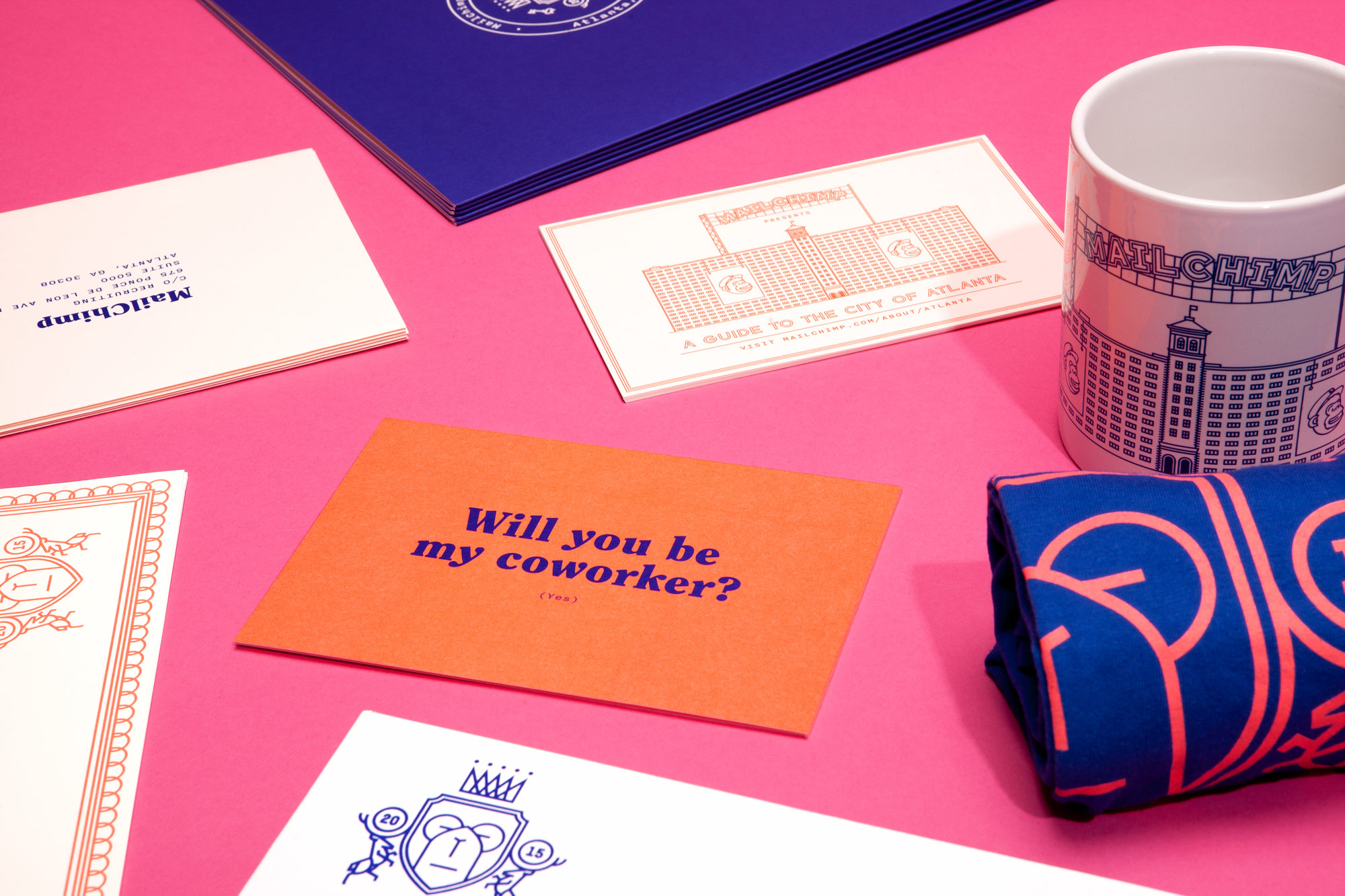

What are some of the greatest benefits and challenges to being an entrepreneurial couple?
Helen: The benefits outweigh any negative associations. We love what we do, so the fact that we work together means that we can work longer and harder, then go home and keep problem-solving. We have the ability to move forward and celebrate together, and when things are hard, we have the ability to lean on each other and have each other’s backs.
The hardest aspect is that it can feel never-ending sometimes. Occasionally, when we go home, we agree to take a night off of talking about work. But, for the most part, we’re on the same page and help each other stay sane. It’s a good thing.
Josh: A lot of people ask, “How could you possibly run a company with your wife?” But I say, “How could you possibly marry someone you couldn’t run a company with?” (laughing)
Helen: Exactly. We share everything.
Josh: If we weren’t running this business together, neither of us would be as fulfilled or as challenged. I believe that being a couple has given us a competitive advantage: we have accomplished more in less time than some other businesses have because Helen and I are in constant communication.
Helen: Right. As a wife, if Josh had to work until midnight, I’d be so upset. But since I’m working with him until midnight, it’s great! (laughing)
What advice would you give to couples who are considering going into business together?
Josh: This might get weird for a minute: some couples don’t go to the bathroom together.
Helen: (laughing)
Josh: And that blows my mind! How have you never gone to the bathroom with that other person in the room? What I’m saying is, I believe you need to have an incredibly open and comfortable relationship if you’re going to go into business together.
Helen: Exactly. You have to be vulnerable and feel like the other person is truly your partner. You need to be aware of avoiding power struggles and making sure each person has their own, defined role. That’s the best way to work together.
Josh: And when you’re in the bathroom together, you can get some shit done. (laughing)
“You have to be vulnerable and feel like the other person is truly your partner. You need to be aware of avoiding power struggles and making sure each person has their own, defined role. That’s the best way to work together.” /Helen
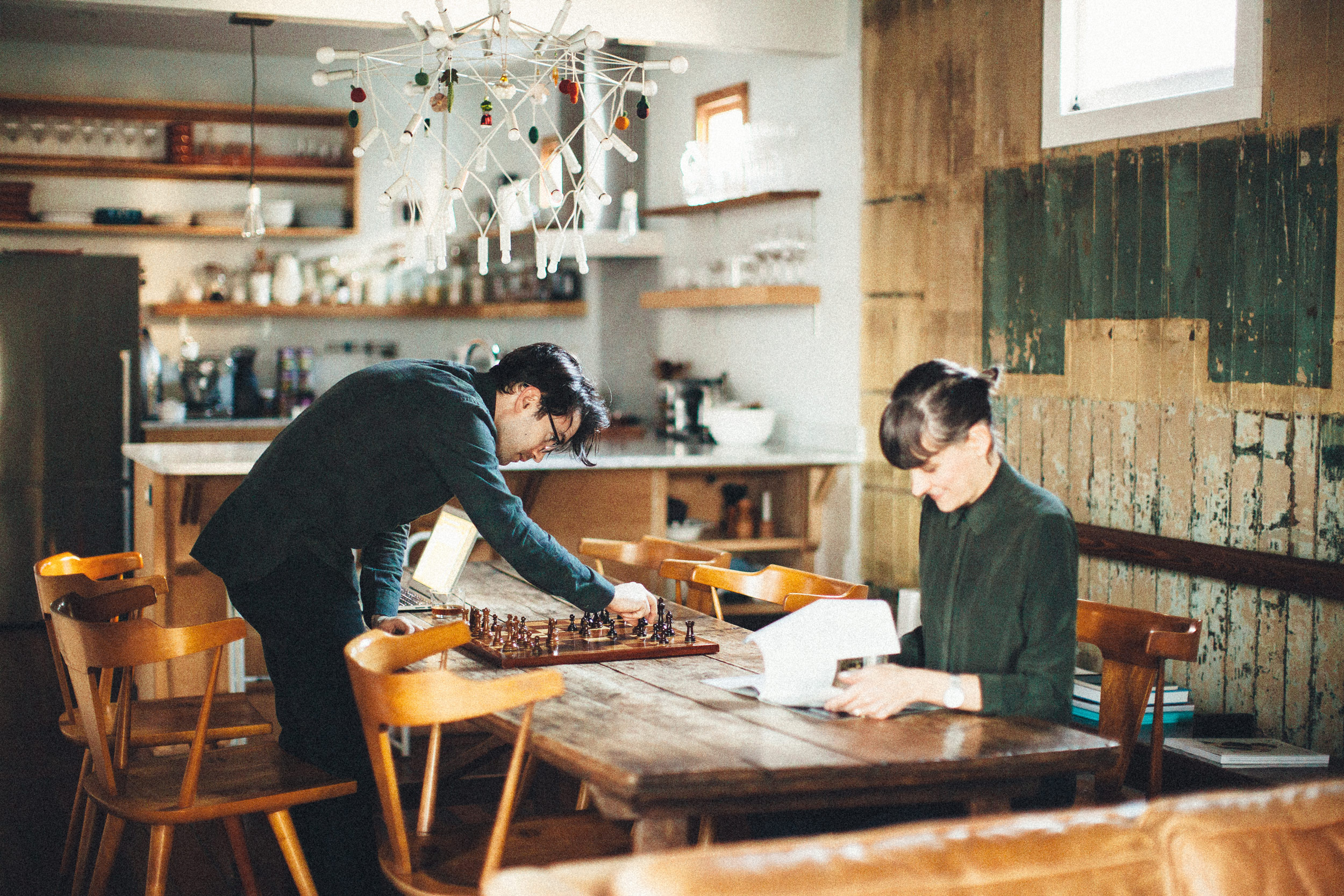
I imagine the more vulnerable and open you are with the other person, the more likely you are to bring up issues or areas of contention within the business that you otherwise would have been more timid about discussing.
Josh: Oh, yeah. You have to be able to do that without thinking. It has to be natural. Another important observation is that you have to have a similar work ethic. Otherwise, there could be some tension.
What are the biggest risks you’ve taken to build your business?
Josh: It feels like we take risks every day. We’re conservative in our general planning. For instance, we will never jeopardize someone’s livelihood based on a feeling we have; and we wouldn’t take on such a huge client that if we lost them, we’d have to let someone go. We mitigate some risks simply by having a broad view of what’s necessary to keep things up and running.
The types of risks we’ve taken feel like they’re more about who we choose to work with and less about getting into a spot that we might not be able to get out of.
Another risk was letting some members of our team start working remotely, which is what ultimately yielded the Portland office. It was hard to decentralize the team, and it took some time to learn how to work together from a distance.
Helen: Investing in Pretend Store is also a bit of a risk. We’re going to see what happens. We’re learning a lot along the way, and it’s fun, but it’s certainly unknown how it will turn out.
Speaking of, tell me more about your storefront, Pretend Store?
Helen: When we moved our studio out of our most recent office in 2013, we were looking for a long-term tenant to take our place. We thought it’d be a great idea to see if some of our friends in retail might want to lease the space long-term. In order to test the waters with a bunch of people, we invited them down for a pop-up series that we called Pretend Store. We also collaborated on a product with each of the shop owners, which was so much fun: this included Worsted, Studio O+A, and Proud Mary.
That evolved into what is now Pretend Store, which is more of a general store concept. We are designing a lot of our products and doing collaborations with companies we love, including MCMC Fragrances, Todd Heim Projects, Hansel from Basel, Mama’s Sauce, Real Thread, East Fork Pottery, and Candlefish. We met some of these companies as Fuzzco clients, and it’s been awesome to see how the relationships have developed. We just relaunched Pretend Store as a digital storefront, and plan to open a physical store in Charleston in April 2016.
Josh: It’s been a wonderful experience, and we’re proud to finally see all of this work getting produced.
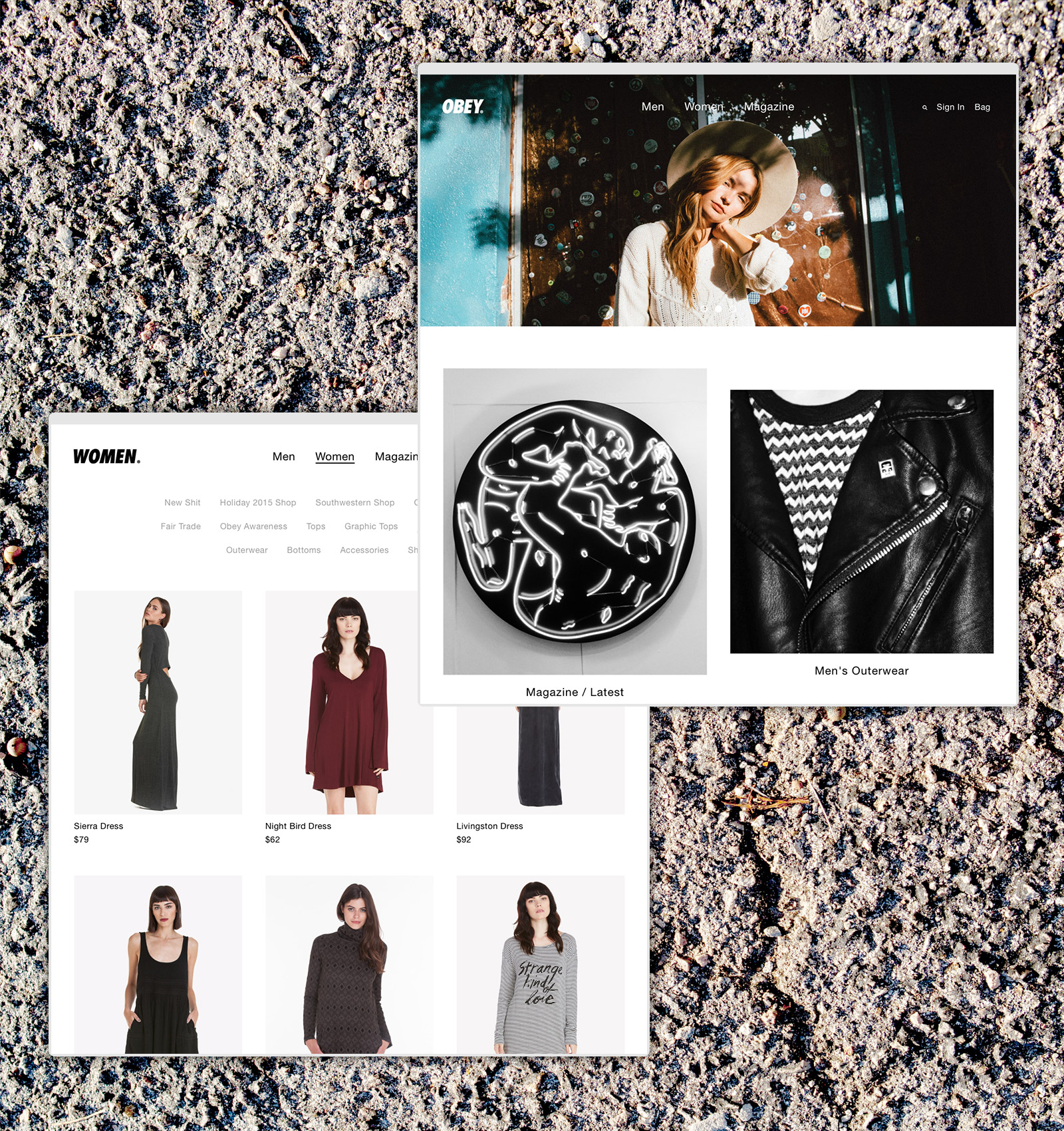
“We’re all just making it up as we go along. The professional world doesn’t have to be scary. I think that’s what intimidates a lot of people. But if you’re honest with yourself and who you’re working with, you can make anything happen.” /Josh
What would you say to a young person just starting out? Or, what might you say to your younger selves when you were just starting your business?
Helen: I’d say to be honest with yourself about what you actually enjoy doing, figuring out how to do more of it, and letting that shape the next steps in you career.
Josh: I would say to trust your intuition—that’s huge. When you’re young, you sometimes think you don’t have enough experience to have good intuition, but as you age, experience informs it. We’re all just making it up as we go along. The professional world doesn’t have to be scary. I think that’s what intimidates a lot of people. But if you’re honest with yourself and who you’re working with, you can make anything happen. My good friend, Caleb Yarian, who runs our Portland office, tweeted this a while ago: “Let’s all just laughingly admit that it’s been a long, elaborate, and largely unsuccessful game of dress-up, and climb back into the trees.” (laughing) We often joke around about this, but that particular phrasing is exactly how I feel sometimes.
Helen: Yeah. When I was younger, I used to feel intimidated by all the steps it might take to get to do something I wanted to do. I used to think, “I don’t really know enough to do that,” or, “I don’t even know where to begin.” But now that I’m older, I know that you never really reach a point when you feel qualified enough. Sometimes there aren’t answers, and you just have to figure it out. The more confidence you have and the more hardworking you are, the easier it is to figure it out.
Do either of you feel creatively satisfied?
Josh: We have the outlets to be creatively satisfied, but we will always want to stumble upon new projects or problems to solve. We’ll always be curious.
Helen: I feel like there used to be a point where, in order to be creatively satisfied, I felt like I needed to make things with my own hands. Now, with the amazing team we have, I feel like collaborating and seeing projects through together is so much more fulfilling than anything I could do by myself. That’s why coming into work every day is so much fun: everyone on our team is so talented and wonderful to work with.
A lot of people say they do the work they do because it’s fun and something they’re passionate about, but some talk more about their work in the context of service or contributing positively to the world. Are either of you closer to one side over the other, or a little mix of both?
Josh: Maybe both of those camps are saying the same thing? Some just look at the micro view and some look at the macro view. I love both perspectives: I love what I do when I’m doing it, but I also love taking a big step back and seeing how it has impacted other people.
Helen: A lot of what we do is about working with clients to help them realize their dreams. Whenever we work on a project, we plug into someone’s business. That’s part of why our jobs are so interesting: we get to work with so many people across so many different industries, and it’s exciting to provide different ways of looking at solutions to their problems and executing on something beautiful. In the end, it’s just great to see them be successful and see that work out in the world.
Some designers advocate saying yes to as many opportunities or clients as they can, while others argue that saying no is actually more important in order to do better work. Where do you fall on that spectrum?
Josh: Saying no is important, but I would rather encourage people to say yes to everything, because sometimes you don’t know who you might want to work with until you actually work with them. And sometimes you might think you want to work with someone, but then you realize that you don’t. But in order to get better at answering that question, you should say yes to everything to sharpen that intuition. I also encourage people to say yes to things they have no idea how to do and just figure it out as they go along.
Helen: Right. It’s important to keep growing as a business and keep evolving your skill set. Having a mastery over a certain core subset of services is important, but especially in terms of technological developments, it’s important to continue to push yourself and try new things.
You mentioned that your social networks in Charleston were important for helping your business get off the ground when you were first starting out. How else has living there influenced your work or creativity?
Helen: I love it here. We are constantly inspired by the architecture and the rapidly growing creative community. The city is growing fast and as more and more people move here from bigger cities, they bring with them a lot of energy and new ideas. However, with the growing creative community, there are a lot more people who offer similar services, so it can be harder to get local work.
It’s also been a challenge recruiting people to come work with us here in Charleston. When young designers graduate from school, they want to go live in New York or San Francisco and have that life for a while. Charleston isn’t on the bucket list. It’s a small town, and the creative community here is small. Though it’s growing, there aren’t the same kinds of opportunities in our industry here as there are in large cities.
Josh: Yeah. Some challenges to Charleston are that there isn’t a large, local talent pool and it’s hard to convince people to move here. A lot of the applicants we love will often ask us to let them work remotely from another city, but we don’t want to do that.
Helen: But that has been one great aspect of the Portland office: there is a lot of talent in that city.
What does a typical day look like for you, if there is one?
Josh: The arc of my day is waking up around 7am, playing speed chess on my phone for about an hour, and hanging out with our three black cats on the bed. I get out of bed around 8am or 8:30am at the latest, shower and dress very quickly, then walk to our office, which is two blocks away.
My day is made up of a barrage of meetings that consist of creative reviews, getting to know new prospective clients, talking to existing clients, and planning with the team. A lot of what we do daily is helping people when they’re stuck.
Helen: We’ve been cramming every minute of the day full for years. Some days we’ll be at the office until 9pm or later. That’s not to say that we don’t have fun or take nights off, because we do. We have a lot of friends that we get together with, but even that is scheduled. (laughing)
Josh: Have you ever played one of those side-scroller Nintendo games where you can only move forward and can’t go back?
Yeah, like Mega Man?
Josh: Right. A lot of times, that’s what it feels like: we’re constantly moving forward and reacting to everything that’s happening. (laughing) We really have to trust our intuition and make a ton of decisions in the moment.
But that’s what you have to do when you own a business, right?
Helen: Yeah. We wouldn’t be able to do it if we didn’t love it. There’s always something different around the corner, so there’s always something to look forward to.
One more question: What type of legacy do you hope to leave?
Josh: I guess it would be important to us for the people we worked with to have positive memories of our time together. Nothing too ambitious: just hoping that the time we spent on earth with people meant as much to them as it did to us.
Helen: Yeah. Having grown up in Charleston, and considering how much I love it, I hope that what we’ve done with Fuzzco has helped put it on the map.
Josh: (to Helen) Maybe before we die, we’ll adopt 100 cats and name them all Josh or Helen. Then we can give them away to various people in our will who will be forced to remember us for a few years. Does that count as a legacy? (laughing)
Helen: (to Josh) Wow. Hopefully I don’t outlive you for 20 years.
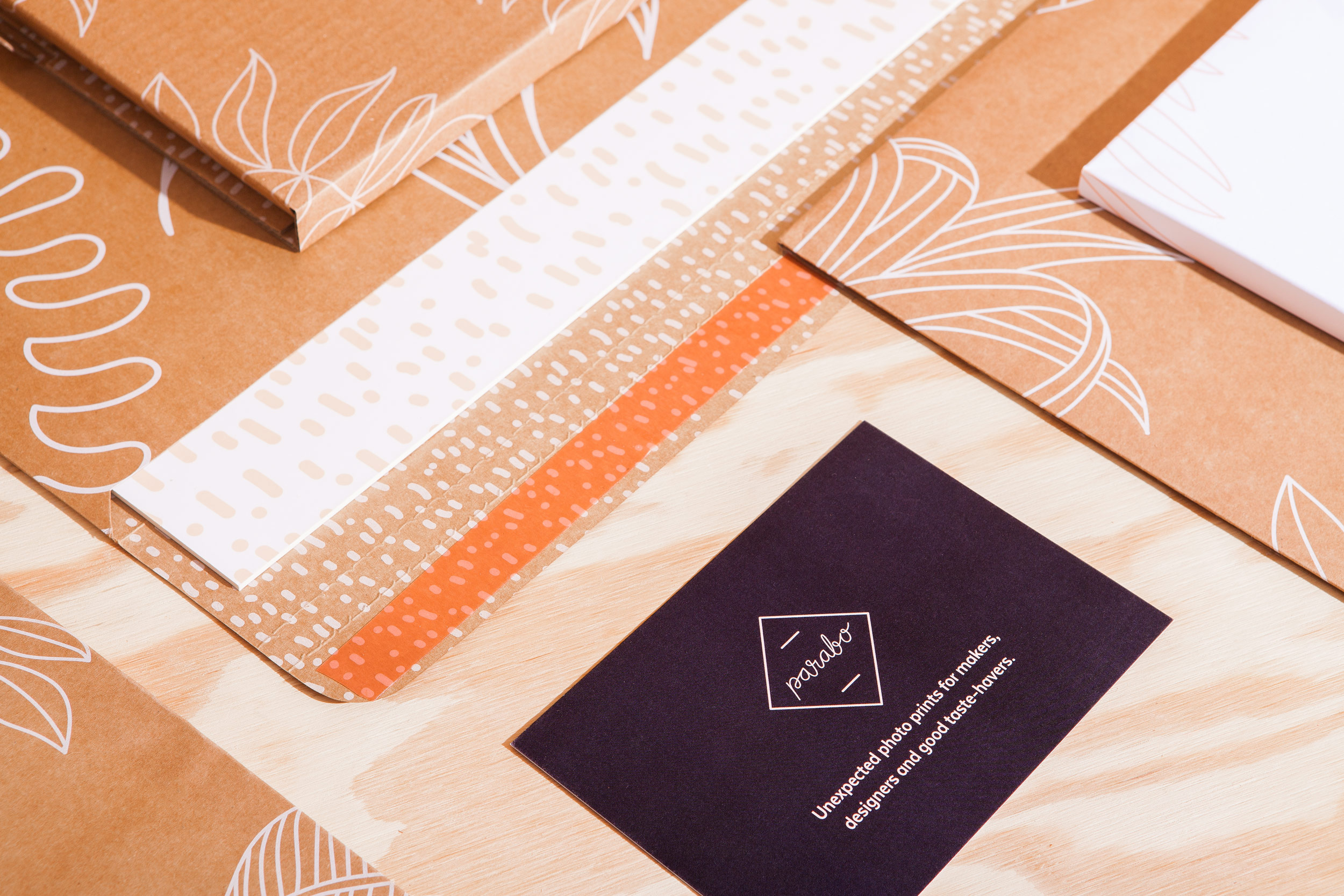
“Saying no is important, but I would rather encourage people to say yes to everything, because sometimes you don’t know who you might want to work with until you actually work with them…I also encourage people to say yes to things they have no idea how to do and just figure it out as they go along.” /Josh
